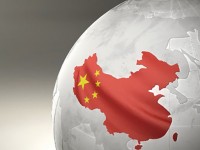Zhang Monan, Deputy Director of Institute of American and European Studies, CCIEE
Jan 20, 2016
As it acts upon the 13th Five Year Plan, Beijing must combine government fiscal investment, corporate R&D, industrial investment, venture capital, bank credit investment, capital market financing, science funding and more, to make a financial system with a full range of support to update China’s economy. An efficiently operating system will be key to the nation’s future competitiveness.
Liu Mingkang, Ex-chairman, China Banking Regulatory Commission
Dec 03, 2015
Last month, China’s leaders revealed details of the 13th Five-Year Plan, which will guide the economy’s trajectory until 2020. Gone are the directives to expand industrial production at a breakneck pace that characterized previous five-year plans. Now, the focus is on achieving sustainable long-term growth, underpinned by domestic consumption, a stronger services sector, entrepreneurship, and innovation.

Qin Xiaoying, Research Scholar, China Foundation For Int'l and Strategic Studies
Nov 20, 2015
Except for the disruptive years of the “cultural revolution”, the five-year planning system has given the country a unified strategic outlook, especially in the recent years of opening up and development. The current CPC Central Committee is steering the Chinese government, in the coming five years, to emphasize people’s livelihood and well-being, and to effectively promote economic transformation and consolidation.

Ding Yifan, China Forum Expert and Deputy Director of China Development Research Center
Nov 19, 2015
In the past, people measured China’s contribution to global economic growth through China’s GDP growth. But many factors in the GDP are the profits created by the foreign companies’ investments in China, so new ways of looking at the impact of China’s economy are in order.

Chen Bin, Researcher, State Information Center
Nov 04, 2015
The expansion of the Chinese economy and the resulting improvements in the lives of Chinese people have been impressive outcomes of the just-ending Five-Year Plan, despite the recent slowdown in the economy. The blueprint for (2016-2020) is taking shape to build on that progress.
Andrew Sheng, Distinguished Fellow at the Asia Global Institute at the University of Hong Kong
Xiao Geng, Director of Institute of Policy and Practice at Shenzhen Finance Institute, Chinese University of Hong Kong
Oct 26, 2015
Beginning this week, the Party must agree on the direction of China’s 13th Five-Year Plan, which is to be launched in 2016 and is supposed to enable the country to graduate from middle-income status by 2020 by reforming the quality of market competition, government accountability, and the provision of public goods and services
Michal Meidan, Director, China Matters
Oct 16, 2015
China’s recently announced cap-and-trade system to limit emissions is a positive development, but not new. China’s emissions trading system (ETS) has seen some capping, and very little trading. Additional challenges lie ahead in the pricing of carbon and introduction of unified measurement, reporting, and verification systems.
Oct 13, 2015
Top leaders in China's ruling Communist Party will hold a key meeting from Oct. 26 to 29 to discuss the next five-year plan.
Stephen Roach, Senior Fellow, Yale University
May 01, 2013
At 7.7%, China’s annual GDP growth in the first quarter of this year was slower than many expected. While the data were hardly devastating relative to a cons